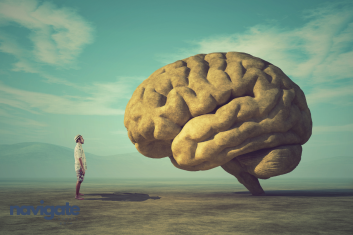Psychoeducation: The Key to Understanding and Managing Chronic Pain (part 4 of our Gold standard series)
Posted on: Apr 11, 2025
Navigating chronic pain can feel like an uphill battle, but understanding your condition through psychoeducation can be a turning point in your recovery journey. Psychoeducation equips you and your loved ones with essential knowledge, fostering a collaborative approach to pain management.
The Purpose of Psychoeducation
Psychoeducation goes beyond simply conveying information; it is a supportive process that helps patients and families understand the intricacies of chronic pain. Here are some of its primary objectives:
- Education on Chronic Pain Mechanisms: Understanding how chronic pain works—its physiological and psychological components—can be enlightening. This knowledge helps patients differentiate between normal and abnormal pain responses, allowing for more effective management.
- Coping Strategies and Self-Management: Psychoeducation includes discussions about coping skills, such as relaxation techniques, mindfulness practices, and gentle physical activities. Learning these strategies empowers you to take active steps in managing your condition, rather than feeling like a passive victim of circumstance.
- Building a Supportive Environment: Involving family members and loved ones in psychoeducation can create a more profound understanding of what you're going through. When your support system is educated, they're better equipped to offer the help and empathy you need.
Core Topics Addressed during Psychoeducation
In psychoeducational sessions, you can expect to cover topics such as:
- The biological basis of chronic pain, including nerve signals and brain responses.
- How emotional and environmental factors influence pain perception.
- The importance of setting realistic goals and expectations in your treatment journey.
This holistic understanding promotes a comprehensive approach to care, bridging gaps between physical, emotional, and psychological health.
Encouraging Active Engagement
One of the most significant aspects of psychoeducation is its focus on fostering self-efficacy and empowerment. It invites you to:
- Participate in discussions about your treatment plan and express your concerns and preferences.
- Track your symptoms, triggers, and responses to different interventions, making your healthcare provider’s job easier and more efficient.
Conclusion: Transforming Pain into Understanding
Psychoeducation is a powerful tool that transforms chronic pain management from a daunting challenge into an informed and proactive process. By deepening your understanding of chronic pain and learning practical strategies, you cultivate resilience and empowerment in your journey toward healing.
As you and your healthcare team work together, remember that every piece of knowledge gathered enriches your ability to live well with chronic pain. It’s about taking back control and finding your path to recovery.




